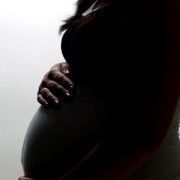 Photo: Getty Images
Photo: Getty Images
Autoimmune disease is a major cause of illness and disability for women. There are over 100 serious illnesses caused by the autoimmune process. The American Autoimmune Related Diseases Association (AARDA) web site reports that overall, these disorders strikes women three times as often as men.
The ratio of females to males is exceptionally high in some types, as follows:
1. Hashimoto's thyroiditis, 10:1
2. Systemic lupus erythematosus, 9:1
3. Sjogren's syndrome, 9:1
5. Primary biliary cirrhosis, 9:1
6. Autoimmune hepatitis, 8:1
7. Grave's disease, 7:1
The AARDA web site adds that autoimmune disease typically strikes women in their childbearing years, when they appear healthy. The early symptoms tend to be vague and intermittent, making diagnosis difficult.
Ali S. Khashan of University College Cork, Ireland, and colleagues in Denmark studied the effects of pregnancy on the risk of autoimmune disease. As background information, they pointed out that sex hormones including estrogen and progesterone have some influence on the autoimmune process, and the levels of these hormones change dramatically during pregnancy.
“However, it is unlikely that the difference in sex hormones between women and men alone explains the preponderance of AID [autoimmune disease] in women,” Khasan wrote.
Another possible factor is fetal microchimerism. “All types of fetal cells, including stem cells, cross the placenta during normal pregnancy to enter the maternal blood and tissues, where they may be located decades after pregnancy,” Khasan explained.
Khasan and colleagues investigated the rates of autoimmune disease development after the first pregnancy for all women born in Denmark between January 1, 1962 and December 31, 1992. Compared to women with no pregnancy, the risk of autoimmune disease diagnosis was significantly increased during the first year following vaginal delivery or cesarean section, but reduced during the first year following abortion.
“We suggest an association between pregnancy and the risk of subsequent maternal AID [autoimmune disease],” Khasan concluded. However, the data were not adequate for determination of the mechanism. The authors expected fetal microchimerism to have a larger effect after cesarean section or abortion than after vaginal delivery.
Beyond the first year, the rate of development of autoimmune disease was not significantly different for women with different pregnancy outcomes. The study was limited to the first pregnancy.
References:
American Autoimmune Related Diseases Association. Women and Autoimmunity. Web. Dec. 2, 2011.
http://www.aarda.org/women_and_autoimmunity.php
Khashan AS et al, “Pregnancy and the risk of autoimmune disease”, PLoS One 2011 May 18; 6(5): e19658.
http://www.ncbi.nlm.nih.gov/pubmed/21611120
Linda Fugate is a scientist and writer in Austin, Texas. She has a Ph.D. in Physics and an M.S. in Macromolecular Science and Engineering. Her background includes academic and industrial research in materials science. She currently writes song lyrics and health articles.
Reviewed December 13, 2011
by Michele Blacksberg RN
Edited by Jody Smith





Add a CommentComments
There are no comments yet. Be the first one and get the conversation started!